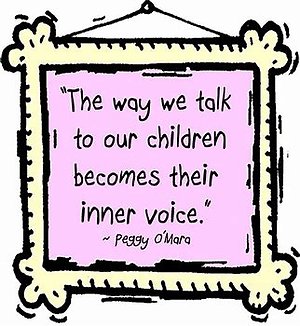Blogs
What Can I do For You?
We have meetings of all kinds in our daily lives. For work, networking, zoom calls between families, meet ups between like minded people… you get the idea. Yet, how many times do we have meetings with our sub-conscious minds? How many times have we stopped in the constant hustle of our daily lives and reflected… why do I do the things that I do?
My name is Saira Hasan, and I arrange meetings with your sub-conscious mind! How do I do that? I am a trained Cognitive Behavioural Hypnotherapist with additional qualifications (EMDR, Past Life Regression Therapy) to help you heal your traumas, stresses, and anxieties.
Let’s unpack this a little more as words like CBT, EMDR might not mean anything to you. You have heard of hypnosis, but it might evoke a memory of a man on stage clucking like a chicken or have sinister undertones where people are made to do things against their will. And that is the opposite of what clinical hypnosis is all about. It is a completely collaborative therapy where the client is always in control.
But let’s start at the beginning of the process. The biggest step a person can take is to seek help. All else is secondary. It takes a lot of courage to reach out to a therapist and actually acknowledge that you have problems that you cannot solve on your own. When prospective clients reach out to me, I offer them a free 20-minute discovery call.
For some, that is enough… to unload to someone anonymous and then probably move on to shop for another practitioner. Forever toying with the idea of getting therapy, but never fully committed to it. And that is ok too. I am glad that I could lend a sympathetic ear to someone in distress.
There are some women who really want to seek therapy but are hesitant… women who have a lifetime of always putting themselves last. They consider therapy a selfish luxury that they cannot or should not indulge in. And for women like these, I only have a couple of questions:
‘Why have you reached out now?’
‘What will happen if you continue like this?’
When someone signs up, their ostensible symptom might be as simple as overeating or struggling to sleep. Yet, when we uncover the layers together, a whole inner world unfolds… those limiting beliefs, the lack of self-esteem, some memories that have never seen the light of the day, that inner child who has never caught up with the adult.
If the first step is seeking help, the second vital one is being aware. Once you are aware of how you think, feel, and behave in different scenarios, you can move forward by smashing vicious cycles. My job is to help you do that. By helping you define your problem, attack it on many levels, delve into the unconscious and guide you to those ‘aha’ moments.
In my experience, the symptoms are the tip of the iceberg. They are essentially a cry for help to unblock your stuck emotions that have been preventing you from moving forward in life. And that is what I do… to help you clear the blockages in your sub conscious mind so that you can live your best life, feeling whole and renewed…

Inner Voice
At the core of our inner critic is usually an overwhelming feeling of not being good enough. So, first try to be aware of your inner critic. An easy way to do that is by using the 'Hello' exercise. Try saying 'hello' and you will hear an answering voice coming from within. Just like that, you know that it is separate from you: what is it saying? When you know it is not you, whose voice is it?
If you have the time, sit down and use pen and paper and separate the strands. When is that critical voice active? What emotions are attached to it? What thoughts arise and what evidence is there to support it? Most importantly, be honest with yourself. Is it really true that NO One cares about you? You need to avoid words like always, never, must, should, etc. Find out the themes that are playing in your mind. Trace the origin to a situation, a throwaway remark and actually question it. Reassess that situation as an adult, with adult lenses. What was the intention? Maybe it is plain teasing, because children do tease. They are playing to an audience or an older sibling might be putting you down because you are getting all the attention.
Thus, a lot of comments we internalise are not even from parents but siblings or children our own age. Are we going to be held hostage by those childish remarks? We have a choice here. Hold on to those for the rest of our lives and be sensitive about them or move on.
If you feel that it is stemming from your parents, if they are alive, talk to them in a non confrontational way and tell them how their words affected you. But please don’t let it be reduced to an emotional slanging match where you make them defensive. If you feel you can’t have that conversation, do the empty chair role play preferably with a therapist who can facilitate you. Most of the time you will notice that the parents did not even realise the damage they have done. Or they may be passing on their own negative inner voice to you. If parents have passed, do the role play and forgive them afterwards.
You can also answer the inner critic by saying: so, what? So, what if you think that? It doesn’t mean it’s true.
Who cares? You think your judgement means anything to me? It doesn’t.
Big deal? Why not? Why am I not the best person to do this job?
The most important aspect of answering back to your inner critic is to learn self acceptance. Thus, interject 'Ok I am!' with whatever you are putting yourself down with. Stupid, fat, ugly... ok I am but I can improve... And then follow up with action. Action leads to more positive action and you keep on building with that. Give yourself the compassion, security, or love that you feel you lacked in your life. Acknowledge the positive as well. In yourself and in others around you.
Another trick is to smile as soon as your inner critic starts talking. Give the big Duchenne smile. Guillaume Duchenne was an anatomist who said we have 19 smiles but the ear to ear, crinkle the corners of your eyes and show your teeth smile is the only genuine one and it releases endorphins in your brain. I personally use it for racing thoughts and when I pondered on it, you can use it to deal with with your inner critic as well...use your sense of humour and physically making light of a situation. And then maybe use those phrases: so, what, big deal, says who? When you are doing it with a smile, you are not getting angry or running the gamut of emotions. And then don’t engage. Just do something else.
And that is how easy it is to deal with your inner critic!

Unresolved Grief
My grandfather was the patriarch of a very noisy, large extended family. He not only took care of his own eight children but fifteen of his siblings’ children as well. He took his responsibilities seriously and provided monetarily for everyone the best he could, but emotionally available he never was. I would have put his aloofness down to the requirements of the job (he had to instil fear and thus discipline in a lot of young people) had I not caught him at a reflective moment towards the end of his long life.
‘You know, everyone that I love, dies! My mother died when I was four, my favourite sister when she was only 28 and my younger and only brother, I lost to tuberculosis very early on. I learnt that to keep my wife and children safe, I had to distance myself from them…’
I didn’t say anything as honestly, at the age of twenty, I barely understood the tragedy behind those words. Now, as I sit here to write about unresolved grief, this snippet of a conversation came back to haunt me. My grandfather had been grieving silently for eighty odd years! He had unconsciously embedded a sense of guilt for the tragic and early deaths of his mother and siblings and for the rest of his life, could not trust his feelings, avoided close relationships and lived with intense underlying sadness his whole life. How many young children who have lost their parent in childhood blame themselves in some way?
We all suffer grief in one form or the other. The way we grieve obviously differs based on our culture and rituals around bereavement. My mother was always concerned that her daughters would not mourn her ‘properly’ at her funeral because they did not cry loudly enough. I smiled through my tears when I inadvertently let out a wail when I could not contain the silent scream in my heart when the dreaded time did arrive. I am sure she must have smiled back. We all bear the scars- but for some of us, time doesn’t heal.
Actually, that is the biggest myth of all. That time heals! Time only heals if we take appropriate actions during that time. Another myth is that loss is easily replaceable. How many women who suffer from miscarriages have heard that? ‘Oh, you can have another one!’ Miscarriage grief largely goes unacknowledged because the loss is invisible to other people. The mother tucks it somewhere in the corners of her mind and marks silent birthdays for the rest of her life. ‘Keep busy’ is another unhelpful comment that grievers get often. So, they do, bottling up the emotion as they seemingly become more functional.
So, what is the right way to resolve grief? What should we say to people who are grieving? How do we acknowledge the loss, yet move on? Recovery is a series of small and correct choices taken over time. How do we let go yet still honour our loved ones?
I can help you on this path to recovery. Book a free 20 minutes consultation today by e mailing me through this website.

How to Deal with Nasty People
‘I feel like a hedgehog that has lost its spikes’! said a relieved young university student who had come to me for help with excessive anxiety. The medication that she had been given at university to deal with it had just numbed her and had not helped. In her words, ‘it was like sticking plaster on a wound that needed stitches’. To fill that gnawing emptiness in her stomach, she had been lashing out at friends and family since she was a young child and by the age of twenty -one, already had the unsavoury reputation for being the nasty person who picked fights and was needlessly rude.
We all have that one person in the family, or at our workplace who is ‘the nasty one’. If you google ‘how to deal with a nasty person’ most of links will suggest that you should either stand up to them, distance yourself from them or both. Based on client feedback, that is the worst thing that you can do. There are different psychological reasons behind needless rudeness, but most often, people are being rude just to cope.
Most of the time, nasty people lash out because they themselves are in a bad place. There is always a lack in that bad place- a lack of self-esteem, a lack of compassion and forgiveness (mostly for the self) and a lack of social support (self-inflicted, mostly). They are angry at themselves and are in some way compensating for perceived inadequacy. When you feel unlovable and unworthy, you act a certain way in order to be disliked. It is a sort of self-fulfilling prophecy.
I know it is hard and easier said than done, but what if we stepped back for a moment and really tried to understand the ‘whys’ rather than react instinctively or take umbrage. What if we don’t take the rudeness personally and recognize that it is not about us but them? What if we try to reach out, rather than push away? Make that person understand that we can see beyond the bad behaviour and are there if they need us? They might not respond immediately and might become defensive- even pass another mean comment- but give them an opening. Give them a chance to show vulnerability and not be judged. You might end up creating a happy, non-prickly hedgehog!

